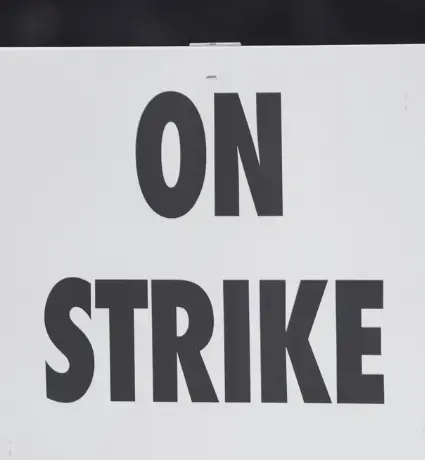
How Should Employers Respond to Strikes?
With nationwide strikes taking place across the country, employers are naturally concerned about how to approach this prevalent issue, and how strikes in different industries may affect their own workplace.
To offer some guidance to employers, our employment law specialists have put together the below article to cover different areas of the strikes.
Why do employees strike?
Strikes take place when a group of workers represented by a trade union wish to protest against something that they think is unfair within their place of work. This could be due to issues with working hours and pay, for example.
With the increasing cost of living, more strikes are focussed on issues with pay, and striking workers are agreeing to stop working to raise awareness of this to those in charge in the hopes of increasing their wages to meet rising costs.
There has been a series of strikes in key industries that can, and have, caused disruption to wider businesses recently, so how can employers deal with the fallout?
Postal strikes
Whilst the majority of businesses deal with documentation on a digital basis, there are still many that rely on the postal service to send important documents, for example HR documents.
With the nature of such letters only being effective once received, this can cause issues in the workplace, such as when it comes to employment termination.
To overcome this particular issue, employers should allow more time for employees to the receive the information, and put time aside to establish the receipt of the documentation.
Important letters regarding HR issues should, where possible, be sent with a tracked postal service, and any important emails either relating to, or separate to this issue, should be sent with a read receipt to ensure the information has been received.
Train strikes and Bus strikes
In regard to transportation, there have been strikes across all forms of public transportation such as buses and trains, all of which can impact the way an employee gets to work.
There are many ways to approach this temporary disruption such as by offering work from home opportunities, changing working hours to reflect reduced travel timetables, or providing employees with the option to take annual leave or unpaid leave on days they cannot commute via public transport.
As always, it's important to communicate the policies you wish to implement in your businesses as a response to these strikes, ensuring every employee has fair access to the options you choose to put in place, and that there is a clear understanding of the company policy in relation to this.
Teacher strikes
With teachers having already started strike action from 1 February, and with more strikes scheduled to take place through to March, schools across the UK may be facing closures that could impact parents that work – if they cannot secure childcare for these days, then there may be employees that cannot attend work.
Should this issue arise, an employer can provide their employees with a set of options, such as taking the day as annual leave or unpaid leave.
Employees also have the right to request unpaid “time off for dependants”.
In workplaces where flexible working has been adopted and home-working procedures are in place, this may also be a suitable option, although this may not be practicable with younger children.
Whatever option you choose, it’s important to openly and clearly communicate your procedures with staff and to remain consistent to ensure fair and equal treatment throughout your workforce.
What if your employees want to strike?
It’s important that these matters are dealt with fairly and professionally, as well as in line with employment law, so as to avoid any cases of unfair dismissal or unfair treatment.
If employees take part in official strike action that is called by a trade union, and their employment is terminated as a result, they can claim unfair dismissal. However, should they unofficially strike and are subsequently dismissed, then typically, they won’t be able to claim unfair dismissal.
An employee partaking in official strike action is not entitled to pay, however, they are protected from dismissal, even if they are not a union member.
Should an employee taking part in strike action behave inappropriately, such as bullying or intimidating other employees or breaching internal policies, then they are liable to some form of disciplinary action from their employer.
Official strike action can only be organised by a trade union recognised by the employer, and following a legal ballot of the employees. The union has to give advance notice of the strike to the employer.
How employers can deal with strikes in the workplace
With a team of employment law and strike solicitors on hand, Smith Partnership can help employers and businesses to navigate periods of unrest and unease when it comes to their staff and employment.
To find out how our expert team of settlement agreement solicitors in Derby, Swadlincote, Leicester, Stoke on Trent, Burton upon Trent, and the rest of the UK can help you, contact us today on 08000 32 32 02, or send us an email via sa@smithpartnership.co.uk.
James Johnson, head of employment at Smith Partnership, and Alexandra Bullmore, an expert solicitor, both with specialisms in employment law, are on hand to help.

Share this article

















